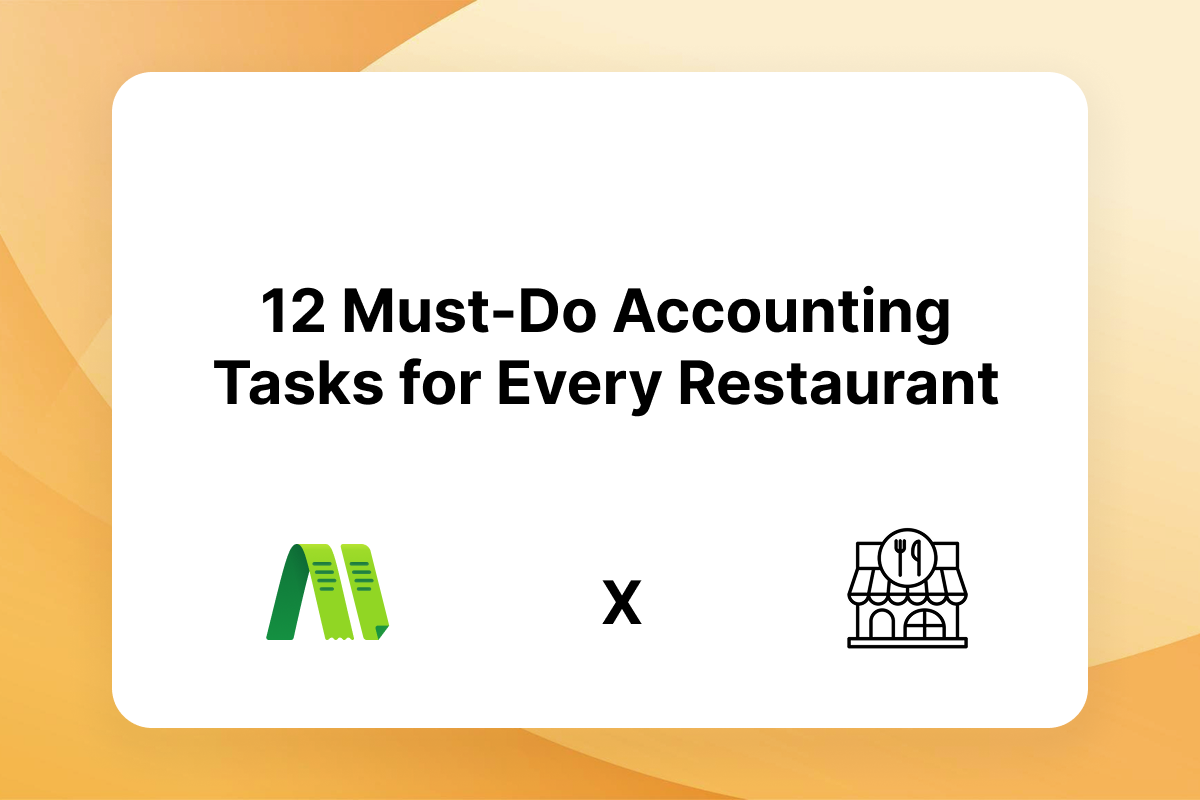
Running a restaurant, making money is only the first step. Whether you can “manage the money well” determines how long you can go.
Many owners clearly see cash flowing in every day, yet by the end of the month, there is no profit; or they are overwhelmed by the chaos of invoices, payroll, and taxes.
In fact, restaurant finance is not just bookkeeping—it is the overall management of cash flow, compliance, and profitability.
The following 12 financial tasks are ones every restaurant must handle well, but are often neglected.
Why it matters: Daily revenue is the most direct data of operations. If not recorded clearly, end-of-month reconciliation will inevitably be wrong.
Common problems: Different payment channels (cash/card/online) are easily missed or duplicated.
Optimization method:
Why it matters: Ingredient costs make up the largest part of restaurant expenses; even slight negligence erodes profit.
Common problems: Inventory waste and supplier price fluctuations are hard to track.
Optimization methods:
Why it matters: Trust with suppliers determines whether supply remains stable.
Common problems: Manual recording often leads to missed or late payments, affecting supply.
Optimization methods:
Why it matters: Delayed collection directly impacts cash flow.
Common problems: Corporate clients and catering orders often have long payment terms and are easily forgotten.
Optimization methods:
Why it matters: Labor costs are another major expense in the food and beverage industry, and calculations must be precise.
Common problems: With a mix of full-time, part-time, and overtime, manual payroll is prone to errors.
Optimization methods:
Why it matters: A restaurant may show profits on paper, but if the cash chain breaks, it is extremely risky.
Common problems: Owners often focus only on revenue while ignoring cash inflows and outflows.
Optimization methods:
Why it matters: Missing invoices can cause difficulties in reimbursement and tax filing.
Common problems: Paper receipts are easily lost or pile up.
Optimization methods:
Why it matters: Once underreported, fines and credit risks cannot be ignored.
Common problems: GST and corporate income tax are complicated, and non-finance personnel often don’t know where to start.
Optimization methods:
Why it matters: Without a budget, it is like “driving blind.”
Common problems: Many restaurants only keep accounts but do not budget, leading to wasted funds.
Optimization methods:
Why it matters: Chain restaurants need a quick understanding of performance across different outlets.
Common problems: Manually comparing reports is time-consuming and delays decision-making.
Optimization methods:
Why it matters: Clear procurement data is the foundation for bargaining power.
Common problems: Without historical data, negotiations are entirely passive.
Optimization methods:
Why it matters: Financial data is not just accounts—it is the compass of restaurant operations.
Common problems: Many owners cannot read reports and miss opportunities for optimization.
Optimization methods:
Financial management is not a peripheral task of running a restaurant; it is the core that supports long-term growth.
By breaking down these 12 financial tasks and leveraging smart tools like ccMonet, owners can spend less time on spreadsheets and invoices, and more energy on food and customers.
👉 Want to see how ccMonet can make your restaurant’s finances easier? Discover ccMonet today.